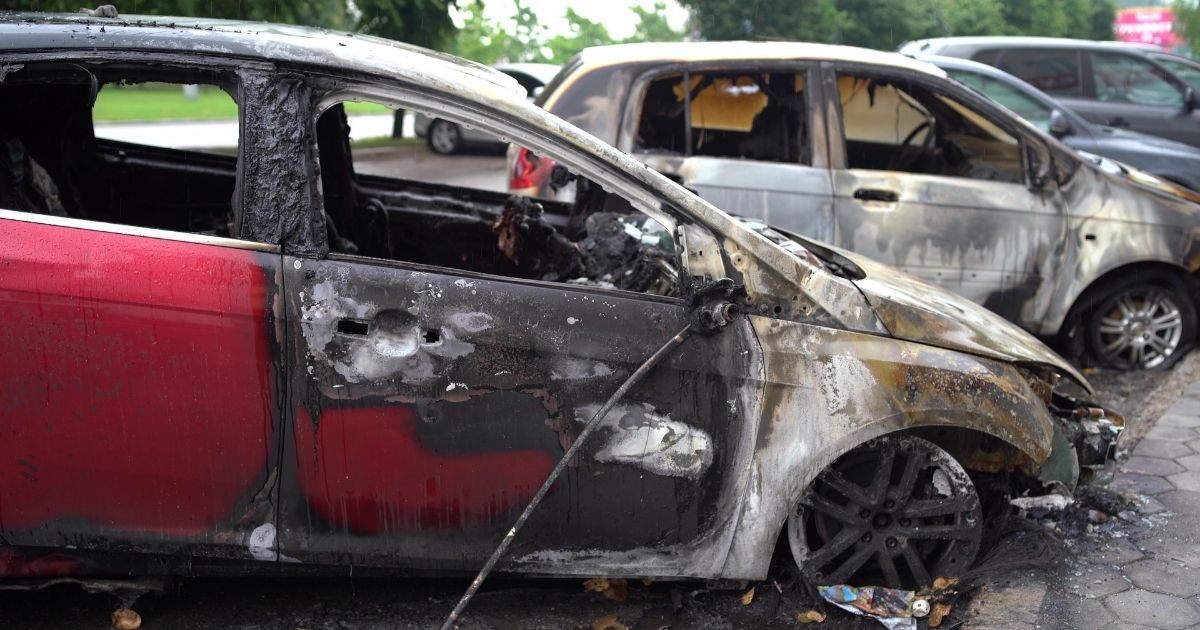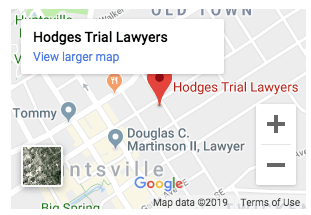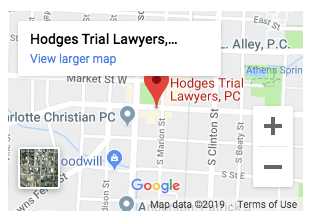Cars are made from steel, rubber, plastic, and other raw materials, but they usually run on gasoline and use fluids such as battery acid. Airbags need chemicals and corrosive gases to work, as well. The impact from a car accident can cause airbags to deploy incorrectly or liquid chemicals to spray, which can lead to dangerous chemical burns to drivers and passengers. Although personal injury can be superficial for some victims, for others they are life-threatening or even fatal.
What do Chemical Burns Look Like?
The immediate aftermath of car accidents can be chaotic, and victims may not realize at first that they have sustained chemical burns; in fact, the redness and pain can take a while to develop. With chemical burns, the symptoms depend on how the person was exposed. If the chemical makes contact with the skin or is inhaled, there can be blisters, hives, rashes, redness, burning, and a shortness of breath. More serious reactions include dead or blackened skin, significant pain, difficulty breathing, and numbness.
Like other kinds of burns, chemical burns are classified as follows. Superficial or first-degree burns injure the skin’s top layer, or epidermis. Partial thickness injuries, second-degree, burns affect the dermis, or second layer of skin. Full-thickness injuries or third-degree burns are the most serious; this is when burns go down to the subcutaneous tissue. If the chemicals get into the eyes, the person can experience blurry vision, burning and stinging, redness and swelling, and pain.
What Should I do after Being Burned by Chemicals?
The first thing to do after a car accident is to call 911; the dispatcher should be told if there are any kind of injuries, including chemical burns. It may also be risky to remain in the vehicle, so it is best to get out and to a safe location quickly, unless the person cannot be moved. The dispatcher can provide guidance with this.
It may take a while for the paramedics to arrive, and while waiting, the burns can be rinsed with cool, clean water or covered with a wet cloth. Removing the burned skin, puncturing blisters, or applying any kind of medicine is strongly discouraged, because it can make the burns worse and make them more susceptible to infection.
When chemicals get on clothing, a watch, or jewelry, these should be removed carefully unless it is not safe to do so. If the burn is not deep or smaller than 3 inches in diameter, immediate medical care may not be necessary. However, it is often best to err on the side of caution, especially if the burn is larger and covers the face, a major joint, hands, feet, buttocks, or the groin area.
How are Chemical Burns Treated?
These victims can face long, painful recoveries, and complications are commonplace. Serious burn injuries can be life-changing, leading to piles of medical bills, continuing care, and an inability to return to work temporarily or permanently. Some unfortunate victims face amputations and significant scarring as well.
Burn victims frequently undergo skin graft surgeries to repair their wounds. Surgeons have to remove healthy skin from another part of the body and attach it to the burned parts. In third-degree burns, full-thickness skin grafts may be needed; this can entail removing skin plus its underlying tissue. Cosmetic surgery, debridement to remove dead tissue, intravenous fluids, occupational therapy, and pain management medications may also be part of the treatment. When complications arise, the recovery process can take much longer. It can be quite traumatic, with intensive therapy and long-term physical and emotional impacts. Patients often need to be educated and counseled to help with their day-to-day challenges as well.
What are Other Kinds of Burns from Car Accidents?
Serious car accidents can also cause explosions and fires, causing heat burns; another type is friction burns, which are abrasions on the skin from traumatic contact with the road or an object. Motorcyclists and bicyclists call this road rash, and in some cases it can be serious enough to require emergency care. People can also get burned from hot steam from a radiator.
Even though the National Highway Traffic Safety Administration (NHTSA) and other safety advocacy organizations hold car manufacturers to certain standards, chemical burns and fires still happen often enough to be of a concern. Fuel containment, wiring systems, and other components are still known to fail, especially when a car is slammed in the front, side, or back by a negligent driver’s vehicle.
Could I Get a Settlement for My Burn Injuries?
It is possible to receive financial compensation for car accident chemical burn injuries, but this all depends on the type of accident, who was at fault, and the extent of the injuries. The type of damages can be split up into three groups: economic, non-economic, and punitive. Economic damages are awarded to cover the financial burdens of medical expenses and lost wages. If the plaintiff is unable to return to work in the same capacity or ever again, this could increase the amount.
Non-economic damages are more of a gray area and might include physical and emotional pain and suffering. Punitive damages may come into play when the liable party’s actions were exceptionally reckless. Courts may award plaintiffs even more in these cases as punishments, and lessons, to defendants.
In successful car accident chemical burn cases, plaintiffs and their car accident lawyers work on gathering up all the pertinent information, including records of the diagnosis, medical treatment, and long-term prognosis. Establishing liability is also key in burn settlements and lawsuits. It may be necessary to reconstruct the accident scene and to interview law enforcement officers, medical personnel, and witnesses as well. Sometimes, the fault lies in the hands of the auto manufacturer if it is found that there were defective parts or manufacturing processes.
Huntsville Car Accident Lawyers at Hodges Trial Lawyers, P.C. Offer Compassionate Legal Guidance to Car Accident Victims
Chemical burns are among the most traumatic and painful injuries that people can suffer in car accidents, so it is important to have a car accident lawyer who can empathize while providing experienced, assertive legal representation. If you or someone you care for has been burned in a car accident, contact the Huntsville car accident lawyers at Hodges Trial Lawyers, P.C. We will fight for your rights and get you the fair compensation you deserve for your injuries. For a free consultation, call us at 256-539-3110 or 888-539-3110, or contact us online. Our Athens and Huntsville, Alabama, offices represent clients throughout North Alabama, including Madison County, Limestone County, Marshall County, Jackson County, Morgan County, and Lauderdale County.



